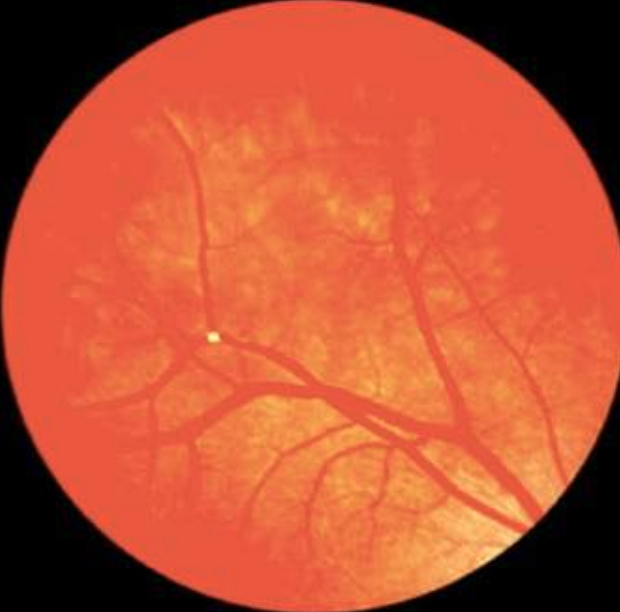 |
| RVO patients in this study had a 13% to 23% greater risk of developing cardiovascular disease. Photo: Julie Rodman, OD. Click image to enlarge. |
An increased risk of cardiovascular disease (CVD) in patients with retinal vein occlusion (RVO) has been well-established, but while most studies find no increased risk of mortality after RVO, results are inconsistent. Researchers recently aimed to evaluate the risk of CVD and all-cause mortality following RVO and assess any significant changes after the introduction of intravitreal anti-VEGF injections in Denmark in 2011.
This nationwide, registry-based cohort study conducted over 20 years evaluated over four million individuals.
Patients with RVO had a 13% to 23% higher chance of developing CVD as compared with non-exposed controls. While overall all-cause mortality did not increase, the risk was higher by 11% for patients diagnosed after 2011. Those who underwent anti-VEGF treatment during this period had a slightly higher risk of CVD but lower risk of all-cause mortality.
“This implies that anti-VEGF might be an intermediary factor in the association between RVO and CVD,” the authors explained. They added, however, that difference in outcomes prior to and after 2011 may be a result of changed referral practice and severity of comorbid conditions in patients, rather than the treatment itself.
The researchers noted that it should be taken into consideration that anti-VEGF treatment in patients with RVO has a well-established effect on visual acuity outcomes to improve quality of life, underlining the importance of receiving the treatment. They encourage clinicians to be aware of the value of adjunct cardiovascular evaluation of these patients.
Frederiksen KH, Stokholm L, Frederiksen PH, et al. Cardiovascular morbidity and all-cause mortality in patients with retinal vein occlusion: a Danish nationwide cohort study. Br J Ophthamol. May 10, 2022. [Epub ahead of print]. |

